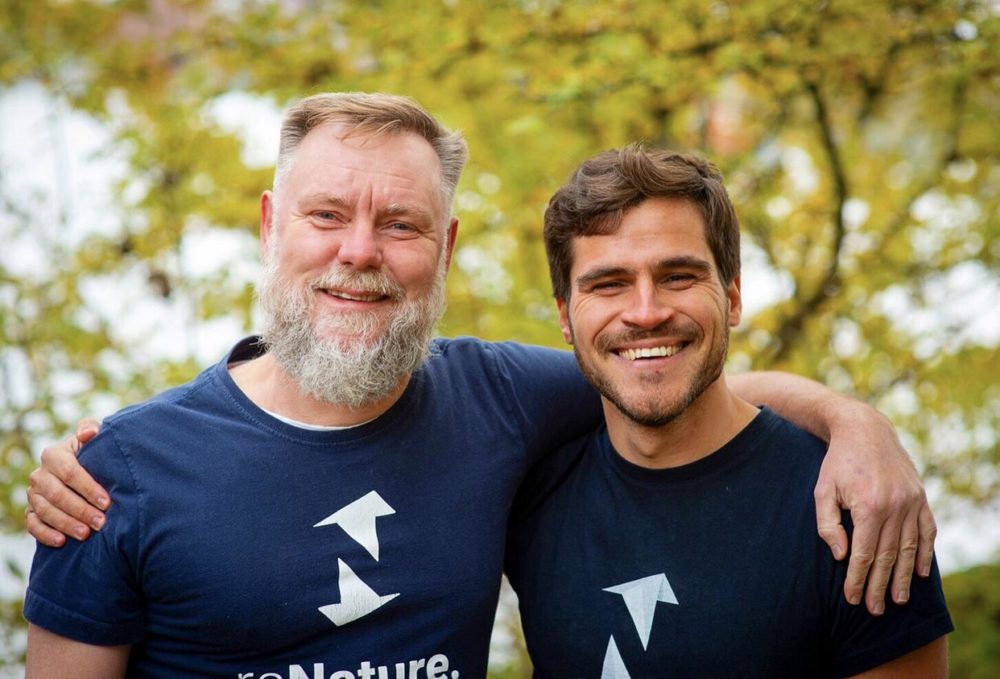Regenerative agroforestry-focused startup reNature has raised €550,000 ($677,000) in seed funding from private investors including Golden Bird fund manager Arne Driessen, New AJE Capital co-founder Josephine Korijn, Toniic senior manager Koen van Seijen, and Murielle and Simon Pickard.
The seed round includes prior funding from two existing investors: Meraki Impact, which manages a venture capital portfolio of funds and co-investments focused on the sustainability of natural resources and food production for a family office; and Doen Foundation, the fund of the Dutch Charity Lotteries.
Launched in 2019, Amsterdam-based reNature takes on projects to support the adoption and scaling of regenerative agriculture. These initiatives dot the globe, with some of the more recent ones taking place in Brazil, Portugal, the Ivory Coast, India, Mexico, Indonesia, and Kenya.
On the Indonesian island of Bangka, for example, reNature is working with other partners including Verstegen Spices and a local farmer organization called PT Can to redesign the cultivation of pepper to also provide multiple byproducts, generate ecosystem services, and boost farmer livelihoods.
“From headquarters, we get clients and their projects. We then connect the dots among international experts who know how to do regenerative agroforestry using our financing opportunities,” said co-founder Marco de Boer.
He told AFN the company grew rather quickly from five to 16 employees in one year, necessitating the need for more capital.
“The round [closed] much faster than we anticipated,” he said, adding that the company has its sights set on raising a Series A sometime next year.
De Boer said the new funding will be used to help fuel the startup’s mission to make agroforestry and regenerative agriculture mainstream. This starts with good communication, and making sure that people hear about the concepts, he suggested.
Part of that communications plan is to open an office in Brazil; the Covid-19 pandemic unexpectedly accelerated the company’s transition to a remote-working model, which should help with the transcontinental move.
Scaling the regenerative dream
Regenerative agriculture is continuing to steal the limelight, gaining attention from big agrifood corporations like Cargill and Danone, prompting government action, and attracting investor dollars. But one of the biggest criticisms of the movement is that scaling this new approach to farming — which urges farmers to take a more holistic, biologically-driven approach to their work — may be impossible. Some think there are simply too many barriers to carry the movement forward.
Most expertise in the segment is local in nature and well-protected by the farmers who work the system, de Boer said.
“They’re afraid to give away this knowledge because it is so specific and you have to have a lot of expertise. How we do it is by starting with a smaller plot so the farmer can learn how to do it without risking his entire financial situation,” he said.
“He can multiply it through a later stage. Nobody has really thought about how you can scale agroforestry.”
Moreover, the regenerative ag movement lacks organization, he added. And while he isn’t too concerned about the lack of a standard definition for regenerative agriculture, some ubiquity would help communicate the concept with fewer mental hoops to jump through.
Regen ag renegades: Koen Van Seijen’s podcast is who’s who of regenerative ag investing. Find out more here
Part of reNature’s approach to remedying this is to bring a more systems-focused approach to regenerative ag. For example, the startup is developing its own in-house processes for things like enrolling new projects. This is a particularly tall order in the context of regenerative ag, which aims to embrace the unique biological and holistic markers of different geographies in order to better incorporate natural systems.
“Everything is unique and you have to do everything again and again. We’re really looking for a way to professionalize the development of these systems,” de Boer said.
He’s also hoping to foster a collegial working environment in the regenerative space. He recalled a project reNature was working on in Indonesia where the trees needed for the system were not readily available on that particular island. The startup had to design a system which included the creation of a nursery on the island that could produce the plants required.
Corporate attention is welcome in de Boer’s eyes, and reNature is working with a few undisclosed players at the moment.
“It’s important the big brands give attention to this because the consumer will follow. And the consumer is also really aware that what they are consuming may not be the best for nature and biodiversity,” he said.
“What we are trying to do with these companies is show that we are not just talking the talk, but we’re also developing systems and embracing techniques that show that they have a result.”





